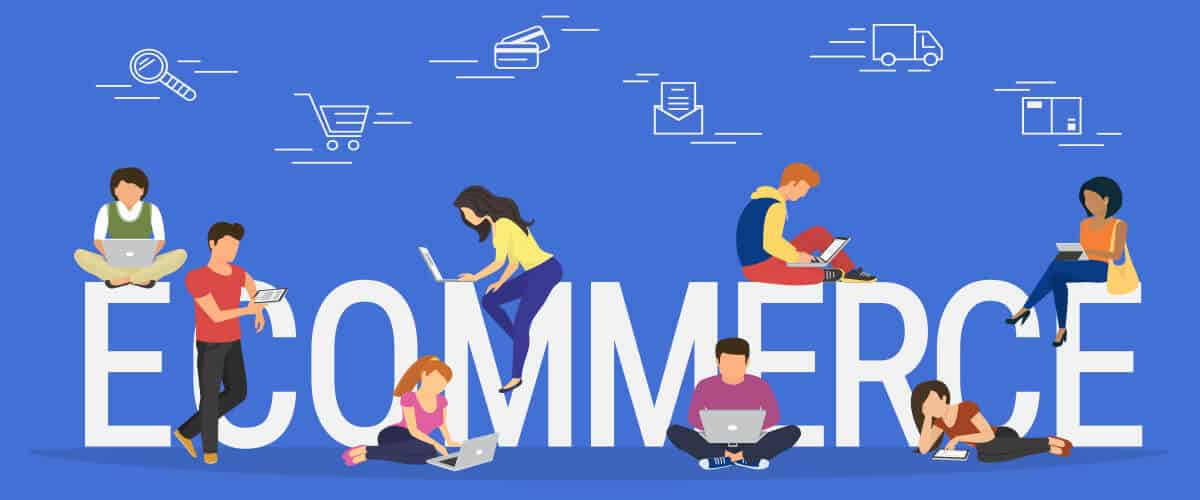As shoppers have embraced online shopping, it is becoming more apparent that they long for a more personalized shopping experience. Customer engagement begins during product browsing and checkout, but the most successful ecommerce personalization must continue in the background with efficient fulfillment operations and warehouse management.
In fact, if fulfillment operations fail, it won’t matter how stellar an ecommerce website is. The customer experience will suffer and risk damaging the brand. Let’s explore the significance of ecommerce personalization and how fulfillment operations and warehouse management software (WMS) support its success.
Contents
Importance of ecommerce personalization
Online retailers lack the physical touchpoints that brick-and-mortar stores enjoy to deliver personalized in-store experiences. To compensate for the lack of face-to-face interaction, ecommerce brands must embrace personalized shopping experiences to help their online customers feel special. Ecommerce personalization helps retailers in the following ways:
Exceed customer expectations
Today’s customers expect personalized shopping experiences at every touchpoint—from product recommendations to custom packaging, and throughout fulfillment with customer service and delivery updates. Personalization has become so important that one in five consumers are willing to pay up to 20% more for products and services tailored to their preferences.
It’s no wonder 89% of brand executives believe personalization is fundamental to their company’s success in the next three years. Retailers who ignore or fail to perfect ecommerce personalization risk losing current and future buyers who see personalization as a standard of customer service.
Create AI-driven custom experiences
Retailers must use customer data to achieve personalization across websites, mobile apps, and customer service interactions. This means using AI and machine learning to analyze customer data and create customized experiences that are relevant and authentic.
Boost customer loyalty
Consistent, personalized shopping experiences help customers develop a personal or emotional connection with a brand. Once this bond is formed, customers become loyal repeat customers.
56% of online consumers said they were more likely to make a repeat purchase from a retailer providing ecommerce personalization. Additionally, customer engagement is higher in a personalized buying journey, translating to higher conversion rates and sales volume.
The role of WMS in ecommerce personalization
Successful ecommerce personalization is achieved through a team effort from customer-facing and non-customer-facing departments. Warehouse teams play a pivotal role in shaping personalization as they handle the operational front.
The background work that drives much of personalization, such as packaging and bundling, occurs in the warehouse. This positions the warehouse as a significant enabler of ecommerce personalization. As a result, legacy WMS that focused on basic warehousing tasks need to evolve into a more customer-centric fulfillment management system (FMS) such as Logiwa IO.
Fulfillment management systems support personalization better than WMS, as they’re designed to handle DTC, as well as B2B, order fulfillment. Top FMS such as Logiwa IO empower personalization through features like:
- Kit-to-Stock Capabilities: Kit-to-stock is the process bundling different product components into a single SKU. Kit-to-stock helps retailers match or exceed customers’ preferences by bundling their favorite items into one package and shipping it immediately after they make an order. Nothing says personalization for customers more than getting their favorite products in one package with expedited delivery.
- Personalized Packaging and Notes: With Logiwa IO’s workflow automation, warehouse managers can streamline the inclusion of personalized notes or packaging options, adding a personal touch to each order. Workflow automations in Logiwa IO, streamline everything from job creation to receiving and shipping—and yes, label printing.
- Offering a variety of delivery options: By integrating with various shippers, WMS can personalize delivery processes by offering customers a variety of shipping options based on their preferences and location, enhancing convenience and satisfaction.
How fulfillment operations support personalization
Fulfillment is an important part of ecommerce personalization. As it’s one of the last touchpoints between retailers and online shoppers it has a strong impact on customer satisfaction. Here’s how fulfillment operations support personalization and foster goodwill.
Order accuracy and speed
Online shoppers’ expectation of fast delivery speeds requires optimized fulfillment operations. Particularly the young Gen Z and Millennial customers who’ve grown up in the age of ecommerce. In fact, Gen Z shoppers are willing to pay 10% of their order value for expedited order delivery.
Overall, about 69% of shoppers are likely to churn a retailer if they don’t deliver their order within 48 hours of the delivery date they promised. Efficient fulfillment operations help meet the delivery expectations of modern shoppers. That is what makes seamless integration between fulfillment operations and ecommerce platforms so important.
Integration with ecommerce platforms
Fulfillment centers and 3PL companies need robust integrations with ecommerce platforms such as Walmart, eBay, and Amazon to streamline supply chain logistics and delivery processes. That’s why a reliable FMS such as Logiwa IO supports seamless integrations using Open API, webhooks, EDI capabilities, and their innovative partner App Store.
Scalability and flexibility
Today’s fulfillment centers can manage complex personalized orders and scale to meet demand fluctuations. There’s also greater flexibility to satisfy ever-changing customer demands. That’s why a top-tier FMS such as Logiwa IO uses a headless architecture that allows retailers and 3PLs to customize their user interface (UI) to be compatible with other third-party applications used by customers.
Next-level ecommerce personalization
Personalization will always be fundamental to ecommerce as customers seek brands that make their buying experience feel special. Personalization is one trend customers continue to appreciate and even use as a defining evaluation criterion, so having a fulfillment partner such as Logiwa can help elevate personalization and the holistic experience for these customers.
An ideal fulfillment partner should also be able to accommodate emerging trends such as hyper-personalization and predictive analytics. Logiwa IO uses headless architecture, which helps future-proof integration of new trends. Request a demo today and talk with one of Logiwa’s fulfillment specialists to find ways to take ecommerce personalization to the next level.
FAQs about ecommerce personalization
What are the significant advantages of personalization in ecommerce?
Retailers who achieve ecommerce personalization can:
- Increase sales and conversions
- Optimize customer experience
- Earn customer loyalty
- Increase average order size
- Increase customer engagement
These perks ultimately translate to more income and profit for retailers. Consistently observing and implementing personalization earns retailers a loyal customer base.
Which fulfillment functions foster the most ecommerce personalization?
Every fulfillment operation contributes to the goal of supporting personalization. However, some functions have more impact than others. Those that impact personalization the most include:
- Packing
- Delivery
- Real-time inventory management
- Order processing
- Shipping
- Order tracking
- Product returns
Those listed above are functions that directly impact customers’ orders. When retailers fumble such functions, they may lose out on customer experience optimization.
What can I do to achieve and elevate ecommerce personalization?
Some strategies to implement today are to:
- Work with a resourceful fulfillment partner such as Logiwa IO.
- Optimize fulfillment operations for greater efficiency.
- Aim for two-day shipping for fast fulfillment.
- Leverage all customer data (complying with data and privacy laws) to glean insights into customers’ preferences.
- Attach tags on delivery packages with personalized messages.
- Seek creative packaging methods such as birthday or holiday-themed wraps.





